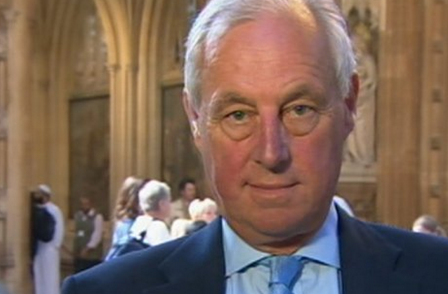
Chairman of the Commons energy select committee Tim Yeo is suing The Sunday Times for libel over a report that he coached a paying client before they gave evidence to his committee.
The paper also reported that Yeo had “boasted of how he can promote businesses in which he has an interest”.
Today Mr Justice Warby issued a preliminary judgment in the case in which he declined a request by The Sunday Times for the case to be heard by a jury.
Under the Defamation Act 2013, jury trials are only now allowed under exceptional circumstances in libel actions.
Warby also ruled that The Sunday Times could rely on the defence of “fair comment” for a statement which was contained in a news story.
The article in question was published on 21 May 2013, before the new Defamation Act came into force. So The Sunday Times has also put forward the old defences of justification (now truth) and Reynolds (now public interest).
Yeo is suing over a front page story, and longer piece inside, written by Heidi Blake and Jonathan Calvert from the Insight Team. The pair posed undercover as representatives from a solar technology developer in the Far East and met Yeo over lunch to discuss providing him with consultancy work. The encounter was secretly filmed.
The front page story said:
THE Tory MP in charge of scrutinising new energy laws has been caught boasting about how he can use his leadership of a powerful Commons committee to push his private business interests.
Tim Yeo told undercover reporters — posing as representatives of a firm offering to hire him — that he was close to “really all the key players in the UK in government” and could introduce them to “almost everyone you needed to get hold of in this country”.
He said he could not speak out for them publicly in the Commons because “people will say he’s saying this because of his commercial interest”. But he assured them: “What I say to people in private is another matter altogether.”
The paper also reported that Yeo had earned £530,000 from private firms since taking over as chair of the committee in 2010, with shares and options worth £585,000 in low-carbon companies that have employed him.
The Sunday Times argued that the case deserved to be heard by a jury because of “the identity and status of Mr Yeo, and the offices or positions he holds”. But the judged declined to exercise his discretion to order a jury trial.
The Sunday Times argued that in using the work “scandal”, saying Yeo had made a “sales pitch” to the bogus lobbyists and that he was “boasting that he masterminded a House of Lords debate to push a paying client’s agenda” it was exercising fair comment.
Mr Justice Warby agreed that the Sunday Times could use the comment defence, even though these statements were contained in news articles.
He said: “In this case, I am to place myself in the position of a reader of The Sunday Times (print or online), a serious-minded weekly newspaper, reading lengthy articles prominently positioned in the news section of the paper on a serious topic of evident political and public importance.
“In the case of the front page and inside articles, they are articles published under the Insight brand which I as the reader am told result from an undercover investigation in the course of which the key conversation has been recorded.
“I would expect the article to be largely comprised of factual revelations though I would also expect some indication of the paper’s viewpoint on what it had uncovered.”
Yeo is suing the Sunday Times with solicitors Carter Ruck under a no win, no fee arrangement.
Read the full judgment form Mr Justice Warby.
Email pged@pressgazette.co.uk to point out mistakes, provide story tips or send in a letter for publication on our "Letters Page" blog
